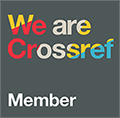Mesleki Gelişimde Öğretmen Öğrenmelerinin Belirlenmesi İçin Analitik Bir Araç: Bağlantılı Mesleki Olgunlaşma Modeli
DOI:
https://doi.org/10.33308/26674874.2022363405Anahtar Kelimeler:
Öğretmenlerin Mesleki Gelişimi- Öğretmenlerin Mesleki Olgunlaşması- Öğretmen Öğrenmesi- Öğretmenlerin Mesleki Değişimi- Bağlantılı Mesleki Olgunlaşma ModeliÖzet
Öğretmenlere yönelik mesleki gelişim etkinliklerinde kanıta dayalı kararlar alınabilmesi için öğretmenlerin nasıl öğrendiğinin incelenmesi gerekir. Ancak Türkiye’deki araştırmaların odağı etkinliklere ilişkin öğretmen görüşlerinin, gereksinimlerin veya sorunların belirlenmesidir. Öğretmenlerin öğrenme sürecini ortaya çıkarmada araştırmacılara analitik bir araç sağlayan modellerden biri Bağlantılı Mesleki Olgunlaşma (BMO) Modelidir. Bu çalışmada öğretmenlerin mesleki değişimi ve mesleki olgunlaşması arasındaki farka değinilerek, BMO Modeli tanıtılmış ve gelecekteki mesleki gelişim araştırmaları için analitik bir çerçeve sunulmuştur. Tarihsel bir perspektifle öğretmenlerdeki yüzeysel mesleki değişim ile mesleki olgunlaşma arasındaki ayrım örneklerle açıklandıktan sonra, gelecekte yapılacak araştırmalarda BMO modelinin analitik bir araç olarak nasıl kullanılabileceğine dair ölçütler tanımlanmış ve verilerin nasıl analiz edilebileceğine dair örneklere yer verilmiştir. Türkiye’de geleneksel hizmet içi eğitim anlayışının mesleki gelişim anlayışına dönüşmesini sağlamada ve yerel ihtiyaçlara yönelik mesleki gelişim modellerinin keşfedilmesinde BMO Modelinden yararlanılabilir. Gelecekte yapılacak nitel araştırmalarda öğretmen öğrenmelerini belirlemek üzere BMO Modeli’nden yararlanabilmek için veri çeşitlemesi yapılmalı ve veriler uzun süre etkileşim kurularak toplanmalıdır.
İndirmeler
Referanslar
Bakah, M. A. B. (2019). Tracing teachers’ professional growth from updating polytechnic courses in design teams. In J. Pieters, J. Voogt & N. P. Roblin (Ed.) Collaborative Curriculum Design for Sustainable Innovation and Teacher Learning (pp. 285-304). Springer. https://doi.org/10.1007/978-3-030-20062-6_16.
Blandford, S. (2000). Managing professional development in schools. Routledge.
Boydak Özan, M., Şener, G., & Polat, H. (2014). Sınıf öğretmenlerinin mesleki gelişim eğitimlerine ilişkin genel görüşlerinin belirlenmesi. Uşak Üniversitesi Sosyal Bilimler Dergisi, 7(4), 167-180. https://doi.org/10.12780/UUSBD401
Boylan, M., Coldwell, M., Maxwell, B. & Jordan, J. (2018). Rethinking models of professional learning as tools: a conceptual analysis to inform research and practice. Professional Development in Education, 44(1), 120-139. https://doi.org/10.1080/19415257.2017.1306789
Bümen, N. T., Ateş, A., Çakar, E., Ural, G., & Acar, V. (2012). Türkiye bağlamında öğretmenlerin mesleki gelişimi: Sorunlar ve öneriler. Milli Eğitim Dergisi, 194, 31-50.
Can, E. (2019). Öğretmenlerin meslekî gelişimleri: Engeller ve öneriler. Eğitimde Nitel Araştırmalar Dergisi, 7(4), 1618-1650.
Clarke, D. J., & Hollingsworth, H. (2002). Elaborating a model of teacher professional growth. Teacher and Teaching Education, 18, 947-967. https://doi.org/10.1016/S0742-051X(02)00053-7
Clarke, D. J., & Peter, A. (1993). Modelling teacher change. In W. Atweh, C. Kanes, M. Carss, G. Booker (Eds.) Contexts in mathematics education. Proceedings of the 16th annual conference of the Mathematics Education Research Group of Australasia, Brisbane: MERGA.
Clarke, D.J., Carlin, P., & Peter, A. (1992). Professional development and the secondary mathematics teacher: A case study. Research Report 6. Oakleigh, Victoria: Mathematics Teaching and Learning Centre.
Clarke, D. J. (1988). Realistic assessment. In D. Firth (Ed.), Maths counts – who cares? (pp. 187-192). Parkville: Mathematical Association of Victoria.
Coenders, F., & Terlouw, C. (2015) A model for in-service teacher learning in the context of an innovation. Journal of Science Teacher Education, 26(5), 451-470. https://doi.org/10.1007/s10972-015-9432-5
Coenders, F., & Verhoef, N. (2019). Lesson study: professional development (PD) for beginning and experienced teachers. Professional development in education, 45(2), 217-230. https://doi.org/10.1080/19415257.2018.1430050
Çetintürk, N., & Yücel Toy, B. (2021). İlk ve ortaokul öğretmenleri ve yöneticilerinin okul temelli mesleki gelişime yönelik görüşleri. Kesit Akademi Dergisi, 7(26), 161-181. https://doi.org/10.29228/kesit.49570
Darling-Hammond, L., Hyler, M. E., & Gardner, M. (2017). Effective teacher professional development. Palo Alto, CA: Learning Policy Institute. https://doi.org/10.54300/122.311
Darling-Hammond, L. (1993). Reframing the school reform agenda: Developing the capacity for school transformation. Phi Delta Kappan.
DeMonte, J. (2013). High quality professional development for teachers: Supporting teacher training and to improve student learning. Centers for American Progress. https://cdn.americanprogress.org/wpcontent/uploads/2013/07/DeMonteLearning4Teach-ers-1.pdf.
Desimone, L. (2009). Improving impact studies of teachers' professional development: Toward better conceptualizations and measures. Educational researcher, 38(3), 181–199. https://doi.org/10.3102/0013189X08331140
Dunst, C. J., Bruder, M. B., & Hamby, D. W. (2015). Metasynthesis of in-service professional development research: Features associated with positive educator and student outcomes. Educational Research and Reviews, 10(12), 1731–1744. https://doi.org/10.5897/ERR2015.23069
Fullan, M. (1982). The meaning of educational change. Teachers College Press.
Fullan, M. G., & Stiegelbauer, S. (1991). The new meaning of educational change. Teachers College Press.
Guskey, T. R. (1985). Staff development and teacher change. Educational Leadership, 42(7), 57-60.
Guskey, T. R. (1986). Staff development and the process of teacher change. Educational Researcher, 15(5), 5-12.
Guskey, T.R. (2002). Professional development and teacher change. Teachers and Teaching: Theory & Practice, 8 (3), 381–391. https://doi.org/10.1080/135406002100000512
Günel, M., & Tanrıverdi, K. (2014). Dünya’da ve Türkiye’de hizmetiçi eğitimler: Kurumsal ve akademik hafıza (kayıpları) mız. Eğitim ve Bilim, 39(175), 73-94. https://doi.org/10.15390/EB.2014.2949
Hartnett, J. E. (2011). Professional growth through working together: A study of reciprocal benefits for teacher and education advisor through classroom-based professional development [Unpublished doctorate thesis]. Queensland University of Technology, Brisbane, Australia.
Hollingsworth, H. (1999). Teacher professional growth: A study of primary teachers involved in mathematics professional development [Unpublished doctorate thesis]. Deakin University, Burwood, Victoria, Australia.
İlğan, A. (2020). Öğretmenler için etkili mesleki gelişim yaklaşımları ile bir model önerisi ve uygulama yönergesi. Eğitim ve İnsani Bilimler Dergisi, 11(21), 171-197.
İlğan, A. (2021). Öğretmenlerin mesleki gelişimi üzerine kavramsal bir çerçeve ve Türk eğitim sistemi için çıkarımlar. Yaşadıkça Eğitim, 35(1), 256-280. https://doi.org/10.33308/26674874.2021351225
Jackson, P.W. (1974). Old dogs and new tricks: Observations on the continuing education of teachers. In L. Rubin (Ed.) Improving in-service education (pp. 19-29). Allwyn and Bacon.
Jin, X., Li, T., Meirink, J., van der Want, A., & Admiraal, W. (2019): Learning from novice–expert interaction in teachers’ continuing Professional development. Professional Development in Education, https://doi.org/10.1080/19415257.2019.1651752
Johnson, N. (1993). A celebration of teachers as learners. Australian College of Education National Conference: Global economy, Global Curriculum. Melbourne.
Justi, R., & van Driel, J. H. (2006). The use of the IMTPG as a framework for understanding the development of science teachers’ knowledge on models and modelling. Teaching and Teacher Education, 22, 437–450. http://dx.doi.org/10.1016/j.tate.2005.11.011.
Kesen, İ. ve Öztürk, M. (2019). Etkili öğretmen meslekî gelişimi, etkinlik temelli öğretmen eğitimi yaklaşımı, 266. İstanbul: Seta Yayınları.
Lewin, K. (1935). A dynamic theory of personality. McGraw Hill.
McChesney, K., & Aldridge, J. M. (2019): What gets in the way? A new conceptual model for the trajectory from teacher professional development to impact. Professional Development in Education, https://doi.org/10.1080/19415257.2019.1667412.
Opfer, V. D., & Pedder, D. (2011). Conceptualizing teacher professional learning. Review of educational research, 81(3), 376-407. https://doi.org/10.3102/0034654311413609
Organisation for Economic Co-operation and Development (OECD). (2019). TALIS 2018 results (Volume I): Teachers and school leaders as lifelong learners. OECD Publishing.
Öğretmen Akademisi Vakfı (ÖRAV). (2021). Öğretmenlerin mesleki ve kişisel gelişim eğitimlerine erişim tercihleri araştırması, İstanbul. https://www.orav.org.tr/i/assets//pdf/degerlendirme-raporlari/Gelisim_Egitimleri_Tercih_arastirma_rapor_.pdf
Perry, E. & Boylan, M. (2018). Developing the developers: supporting and researching the learning of professional development facilitators. Professional Development in Education, 44(2), 254-271. https://doi.org/10.1080/19415257.2017.1287767
Sims, S., & Fletcher-Wood, H. (2021) Identifying the characteristics of effective teacher professional development: A critical review. School Effectiveness and School Improvement, 32(1), 47-63. https://doi.org/10.1080/09243453.2020.1772841
Sancar, R., & Atal, D. (2021). Türkiye’de öğretmenlerin mesleki gelişimi nasıl araştırılıyor? Muğla Sıtkı Koçman Üniversitesi Eğitim Fakültesi, 8(1), 339-354. https://doi.org/10.21666/muefd.847692
Schipper, T., Goei, S. L., de Vries, S., & van Veen, K. (2021). Professional growth in adaptive teaching competence as a result of Lesson Study. Teaching and Teacher Education, 68, 289-303. https://doi.org/10.1016/j.tate.2017.09.015
TEDMEM. (2021). 20. Millî Eğitim Şûrası konularına ilişkin görüş ve öneriler (TEDMEM Güncel Yayınlar Dizisi 6). Türk Eğitim Derneği Yayınları.
TEDMEM. (2019). TALIS 2018 sonuçları ve Türkiye üzerine değerlendirmeler (TEDMEM Analiz Dizisi 6). Ankara: Türk Eğitim Derneği Yayınları. https://tedmem.org/download/talis-2018-sonuclari-turkiye-uzerine-degerlendirmeler?wpdmdl=3085&refresh=614983b9a281e1632207801
Timperley, H., Wilson, A., Barrar, H., & Fung, I. (2007). Teacher professional learning and development: Best evidence synthesis iteration. [BES]. Wellington, New Zealand: Ministry of Education. http://educationcounts.edcentre.govt.nz/goto/BES
Voogt, J., Westbroek, H., Handelzalts, A., Walraven, A., McKenney, S., Pieters, J., & De Vries, B. (2011). Teacher learning in collaborative curriculum design. Teaching and teacher education, 27(8), 1235-1244. https://doi.org/10.1016/j.tate.2011.07.003
Wongsopawiro, D. S., Zwart, R. C., & van Driel, J. H. (2017) Identifying pathways of teachers’ PCK development. Teachers and Teaching, 23(2), 191-210. https://doi.org/10.1080/13540602.2016.1204286
Wei, R. C., Darling-Hammond, L., Andree, A., Richardson, N., & Orphanos, S. (2009). Professional learning in the learning profession: A status report on teacher development in the United States and abroad. National Staff Development Council. https://edpolicy.stanford.edu/sites/default/files/publications/professional-learning-learning-profession-status-report-teacher-development-us-and-abroad.pdf
Witterholt, M., Goedhart, M., Suhre, C., & van Streun, A. (2012). Interconnected model of professional growth as a means to assess the development of a mathematics teacher. Teaching and Teacher Education, 28(5), 661–674. https://doi.org/10.1016/j.tate.2012.01.003
Yazıcılar Nalbantoğlu, Ü. (2021). Öğretim programını sınıfa uyarlama becerilerine yönelik bir mesleki gelişim programının öğretmenlere katkılarının incelenmesi [Yayımlanmamış doktora tezi]. Ege Üniversitesi: İzmir.
Zwart, R. C., Wubbels, T., Bergen, T. C. M., & Bolhuis, S. (2007). Experienced teacher learning within the context of reciprocal peer coaching. Teachers and Teaching: Theory & Practice, 13, 165–187. https://doi.org/10.1080/13540600601152520
İndir
Yayınlanmış
Nasıl Atıf Yapılır
Sayı
Bölüm
Lisans
Telif Hakkı (c) 2022 Yaşadıkça Eğitim

Bu çalışma Creative Commons Attribution-NonCommercial-NoDerivatives 4.0 International License ile lisanslanmıştır.
Sisteme yüklemiş olunan makalenin kapsamı, sunduğu bulgular ve sonucu ve yorumları konusunda Yaşadıkça Eğitim [YE] dergisi Sahibi, Editör, Editör Yardımcısı, Hakemler ve Editör Kurulu'nun hiçbir sorumluluk taşımadığını kabul ederim.
Makalenin özgün olduğunu, herhangi bir başka dergiye yayımlanmak üzere gönderilmediği, daha önce yayımlanmadığını Yaşadıkça Eğitim [YE] dergisi Editörlüğü'ne beyan ederim.
Başlığı belirtilen makalenin, 5846 sayılı Fikir ve Sanat Eserleri Yasasının 22. maddesi gereğince çoğaltma, 23. maddesi gereğince yayma ve 25. maddesi gereğince her türlü taşıyıcı materyal üzerinde veya elektronik ortamda kamuya iletim haklarını Yaşadıkça Eğitim [YE] dergisine karşılıksız, koşulsuz ve süresiz olarak devredildiği, makale ile ilgili devredilen hakların dilediği zaman, mekan ve koşullarda kullanmaya Yaşadıkça Eğitim [YE] dergisinin yayıncısı olarak İstanbul Kültür Üniversitesi'nin yetkili kılınacağını onaylarım.





